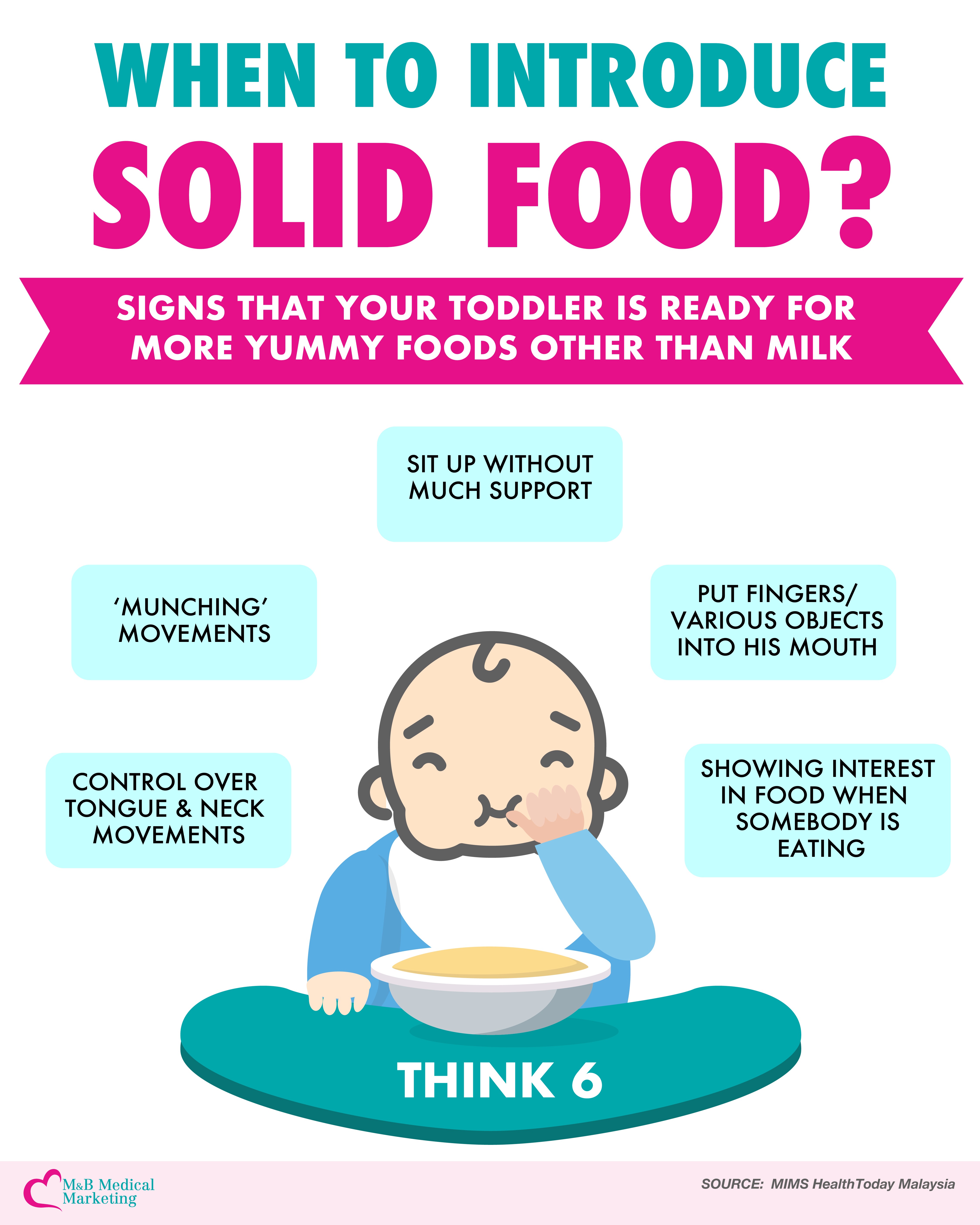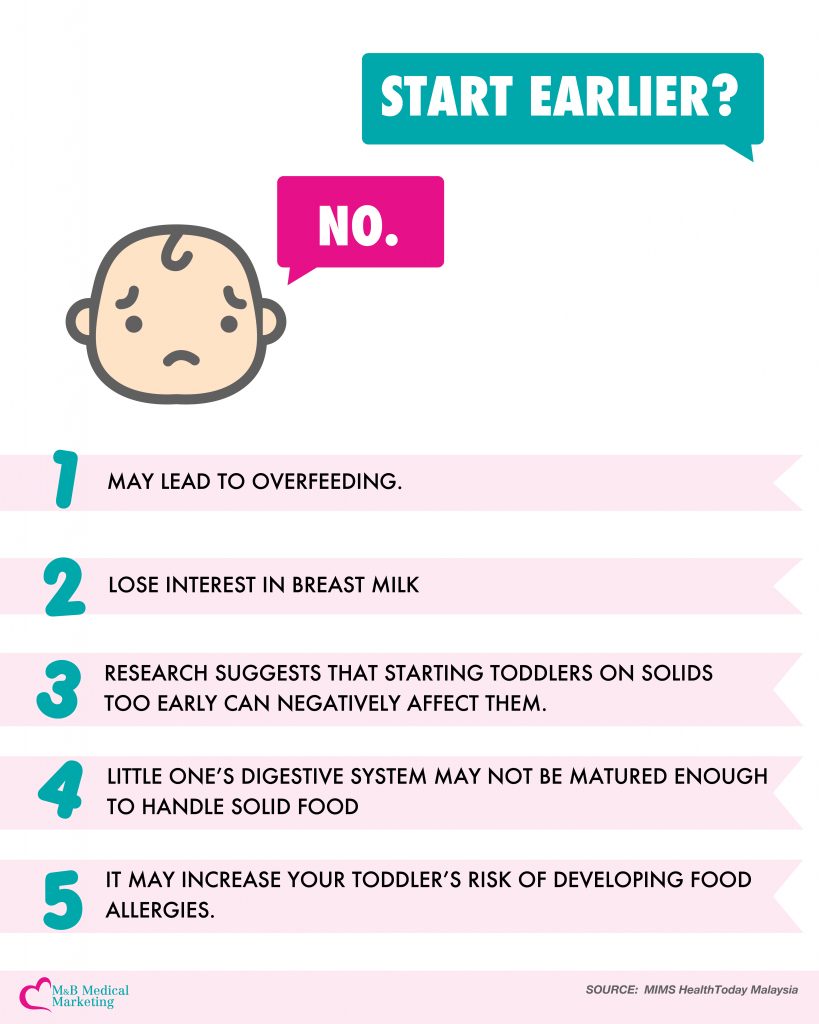CURIOUS TODDLERS
INTRODUCING
SOLID FOOD


Think 6
When is the right time to introduce solid foods? Just like breastfeeding, you should let your toddler tell you, through signs and cues. The starting point can vary between toddlers, but usually, it is around six months. You can start watching for cues and signs around this time.
Here are some signs that your toddler is ready for more yummy foods other than milk:
- You notice that he has more control over the movements of his tongue and neck.
- He starts making ‘munching’ movements with his mouth.
- He can sit up without needing much support.
- He starts putting his fingers or various objects into his mouth.
- He starts showing interest in what you and other family members are eating.If your toddler still does not show any of the above signs when he is six months old, do not panic – he may just need a little more time. However, you can always consult a paediatrician if you have any concerns.
Starts earlier?
You may feel concerned that your toddler may be unable to give those cues, or that it is better safe than sorry to start giving your toddler solid foods as early as possible. However, research suggests that starting toddlers on solids too early can negatively affect them.
- Your toddler’s digestive system may not be mature enough to handle solid foods, so these foods may cause indigestion, bloatiness (‘wind’), diarrhoea or vomiting.
- It may increase your toddler’s risk of developing food allergies.
- Offering solid foods before your toddler is fully ready may lead to overfeeding. Some studies suggest that your toddler may have a higher risk of becoming overweight or obese later on.
- Your toddler will lose interest in breast milk while still being incapable of properly digesting solid foods,
so he may end up not receiving enough nutrients for his growth and development at the end of the day!
What about milk?
Many parents continue to offer milk alongside solid foods – and this is good, as milk is packed with nutrients for the growing child! If you are breastfeeding, continue to breastfeed your toddler on demand even after he has started eating solid foods. However, milk should not be considered a meal by itself. In the early days of introducing your toddler to solid foods, he may show a preference for milk over these foods. Do not let this dissuade you from trying – continue to offer solid foods during mealtimes, and continue to offer milk between main meals.
Source: MIMS HealthToday Malaysia
